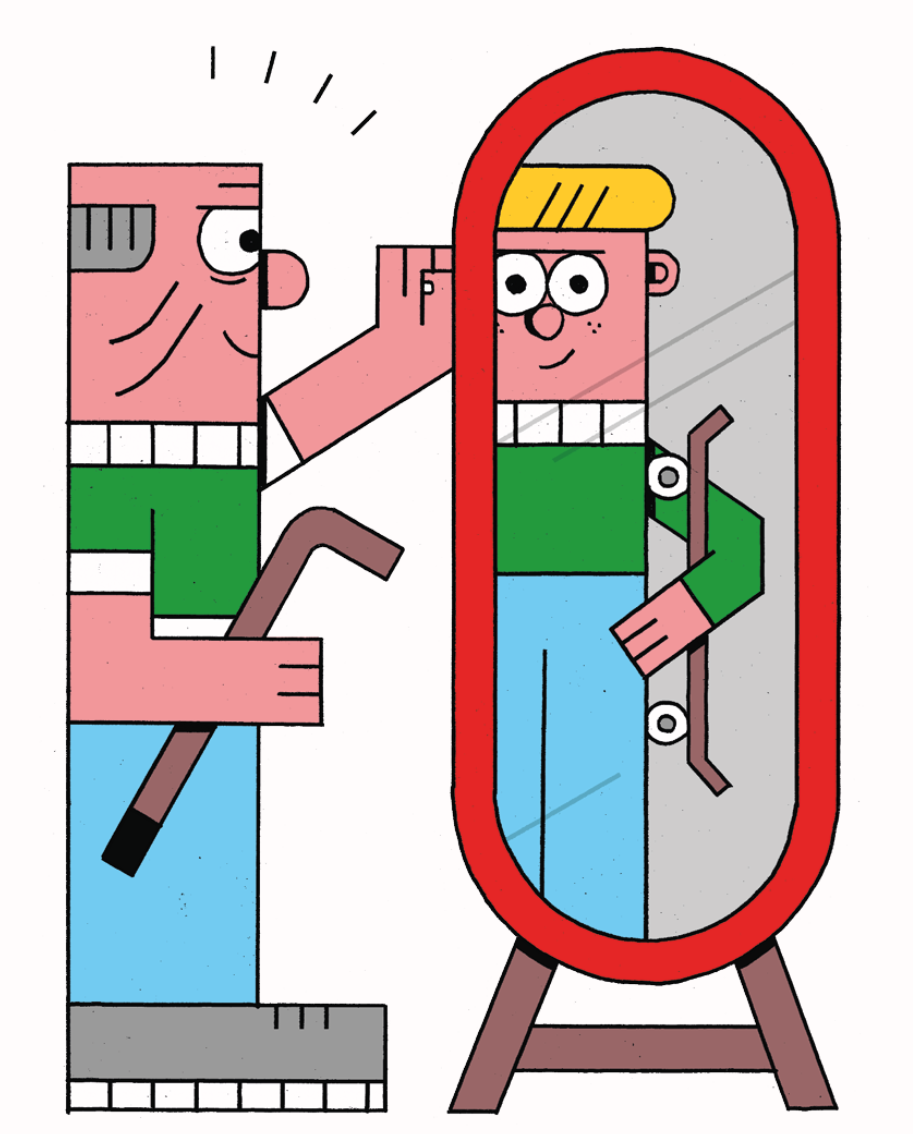#710 | Is it time we broke up with nostalgia?

Nostalgia is everywhere. It's like an old flame that keeps popping up in our lives, seducing us with memories of better times, seeping into music, tech, entertainment, design, and even food. But is this infatuation with the past hindering our future? Join us for a lively online discussion on 17th July to explore the forces giving rise to nostalgia and its impact on culture.
In other news, we wanted you folks to be the first to know that we've said goodbye to Substack (privately-owned) and hello to Ghost (open-source). This means that for the first time since 2016, you can now find (almost) everything we've ever made in one place ... and it sure feels good. So, please have a look around and let us know what you think!
You'll need to use your old Substack email to access the full archive and if you feel like supporting our mission to discover, incubate and release Good Growth projects, as well as unlock some tasty extra benefits, then we would be incredibly grateful 🙏
OK, on with the show ...
SEEDS
- Culture is an Ecosystem by David Marx explores the importance of cultural diversity and how interconnected subunits shape society
- Cult K-Fragrance label Nonfiction is bottling scent memories
- Our very own Joanna Lowry was in the FT talking about the radical rebranding of water
- Are Teratribes the answer to humanity's survival?
- Grace Gordon's piece on Energy Marketing through the lens of Charli XCX’s "BRAT" is a must read
- The art of noticing is a series of groups walks around public spaces in New York organised by our friends at Index and Alex Wolfe
- As is Soccer Bible’s piece on Creative Soccer Culture and how football intersects with art, fashion, and music
- Balenciaga goes "beyond nostalgia"
- Chaj Arunasalam has a solid write-up on the sports stars that are switching to Twitch and why brands like Nike are signing them up
- We fully endorse Kyle Chayka's article in The New Yorker which highlights the need for human curators in our algorithm-driven digital world and how they help us discover and savour meaningful content
- Similarly, Matt Klein explores this rise of human curators, pointing out that "the only thing objectively cooler than a highly-followed curator exhibiting their top picks is simply having your own opinion," while warning that this shift might still bring people's own biases
- The Walrus asks if the true threat of AI lies in our misplaced faith in it, not in its capabilities?
- Suno's $125M funding round is the largest investment in a music AI startup to date and Water & Music have an incredible write-up on what it means as well as how AI detection in music works
- You can find the largest collection of fashion prints and resources in the Fashion Research Library
- Sam Hine on how the trend of visible interest merch is declining
- IKYMI - Jonathan Anderson revealed an heirloom tomato clutch with impressive meme-to-reality timing, following this tweet that called a tomato 'so Loewe'
- TRUSS is the latest entry into the secondhand fashion with some impressive AI recognition features
- Kieran Press-Reynolds explains how brain rot humour is reshaping online language with its absurd and surreal style of comedy
- Everpress' Save Our Spaces campaign looks to supports local venues and grassroots spaces — including the iconic family-run restaurant E Pellicci
- The Luxury of Ageing celebrates the privilege of ageing, reframing it as a luxury for those fortunate enough to grow old
- Telfar released a special collection in honour of Eid al-Adha, and donated 10% of profits to Palestinian aid
- We're loving the look of the Light Phone III as it encourages us all to take a step back and embrace a more intentional lifestyle
- Can AI help to save over 700 regional languages in Indonesia?
- Ten years after normcore became a viral sensation, K-HOLE members reflect on its evolution and impact
OBSERVATIONS
One of the unexpected revelations of bringing everything together on our new platform is being able to see all 84 of our contributors on one page (and then trying not to get too emotional when we see where they are now 🥰). So, we thought it would be a nice idea to feature one of these incredible humans each month by revisiting one of their memorable and still relevant posts:
Beyond Age
by Sarah Pearson, 19 May 2015

‘Age-appropriate’ is becoming a less meaningful term as attitudes shift. Now acting your age can mean pretty much anything.
At least since Shakespeare set down his Seven Ages of Man, which compares life’s progression to the acts of a play, people have tried to make sense of their lengthening lifespans by dividing them into phases. As Shakespeare would have it, one stage is for lovers, another for soldiers, and another is for judges. Finally, ‘second childishness’ awaits.
More recently, the descendants of Freud have attempted similar work. In the 1950s, psychoanalyst Erik Erikson elaborated an eight-stage model of human development, with each stage marked by a crisis and an existential question.
The crises faced between the ages of 18 and 39 are concerned with finding love, and those faced between the ages of 39 and 64 are focused on making life count. People aged 65 and older are said to be looking back on their lives – with contentment or despair, but without a sense of future agency.
While these linear progressions offer the reassuring sense of a natural order, they can seem quaint today. People are now pursuing their passions early in life and staying active and healthy into their later years, enjoying many potentially productive years to be structured however they see fit.
Not withstanding a few moralisers still wagging their fingers at Madonna, there’s no longer any such thing as acting your age.
We now live in a world where an 18-year-old can look back on a career building a media empire, as seen in our story on page 58. At the other extreme, an 86-year-old can achieve viral celebrity and nearly a million Instagram followers with meme-ready fashions and the tagline ‘stealing your man since 1928’. Follow her on @baddiewinkle, if you’re interested.
Continue reading here ...
ABOUT
Protein is a place where people and ideas grow. We do this through our global community, agency, and studios. We believe we’ve all got a responsibility to think and act bigger than ourselves and that Good Growth can only be achieved by balancing purpose, profit, and progress.
Yes, we really have published 700+ issues 👀 of this newsletter. The first Protein Supplement was sent on 17th September 1997 to 14 people and (other than a few breaks over the years) has always aimed to distil what’s happening at the intersection of culture and technology into a concise and accessible digest. If you’re interested in digging into the (incomplete) archive, you can find it here.
We always like to hear from you and how we can improve what we do, and if you’re creative and curious and would like to help build a better future, sign-up here.



Discussion